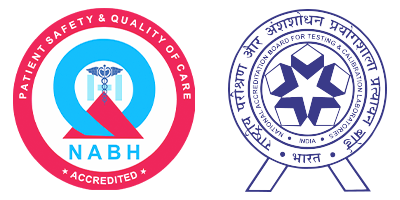Overview
A wide range of consultation services, diagnostic procedures, and therapeutic interventions are offered by the department of neurology at Chettinad Hospital and Research Institute for a variety of neurological conditions, including illnesses affecting the brain, spinal cord, peripheral nerves, muscles, and peripheral nerves. A team of highly skilled neurologists and interventional neuroradiologists work in the Neurology department at Chettinad, which is considered to be a centre of excellence.
Highlights
Through its clinical facilities, the Department of Neurology provides complete consultation, evaluation, and treatment services for adults and children with neurological problems.
Our Services
The following are common neurological conditions that are treated:
- Epilepsy
- Stroke
- Movement disorders
- Memory disorders and dementia
- Multiple sclerosis
- Neuromuscular diseases
- Neuro-oncology
- Sleep disorders
- Pediatric neurology
All central nervous system disorders, peripheral nervous system disorders, and diseases of the muscles are eligible referrals.
A sufficient number of patient beds are available in the neurology and neurosurgery units, and they also have access to extra Private and Semi-Private beds.
Speciality Clinics
|
Monday |
Headache Clinic |
|
Tuesday |
Epilepsy Clinic |
|
Wednesday |
Paediatric Neurology Clinic |
|
Thursday |
Movement Disorders Clinic |
|
Friday |
Botulinum Toxin/Multiple Sclerosis Clinic |
|
First Saturday and Third Friday |
Sleep Clinic |
Services and Facilities:
- EEG Electroencephalogram
- Evoked Potentials (BAEP, VEP, SSEP)
- Polysomnography
- Multi Sleep Latency Test
- Electro Neuro Myography
- Autonomic Dysfunction Tests
- Non-invasive vascular testing
- Magnetic resonance spectroscopy
- Functional magnetic resonance imaging
- Cerebral angiography
- Nerve conduction study
Specialty procedures
The following are some examples of specialty procedures used
Procedures involving the brain
Our Neurointerventional team uses high-resolution imaging equipment, such as ultrasound (sound waves), CT scans (series of X-ray images), magnetic resonance angiography (a strong magnetic field and radio waves), and angiograms (an X-ray test), to detect complex neurovascular problems.
The neurologists and neurosurgeons on staff, along with our interventional neuroradiologists, collaborate to find the most effective course of treatment for each patient. These experts employ cutting-edge methods including microsurgery and endovascular operations, which are performed inside blood vessels. Among the steps are treatment of a wide range of conditions including:
- Stroke which is the third leading cause of death in the country. In our hospital we regularly perform endovascular thrombectomy and thrombolysis. Thrombectomy is performed to remove blood clots in the brain through small tubes
- Carotid stenosis treatment through minimally invasive surgery or the use of micro-balloons and stents threaded up to the brain through an artery in the groin to remove fatty deposits in the carotid and restore normal blood flow
- Surgical clipping of complex (ruptured and unruptured) brain aneurysms, redirecting blood flow away from the aneurysm site to prevent rupture
- Treatment of abnormal connections between the arteries in the brain using liquid agents to block blood flow (such as Onyx or n-BCA)
- Vascular malformations of the brain and spine, Vessel occlusion
- Carotid artery disease, Temporary and permanent vascular occlusion
- Tumour embolization of the head and neck
- Embolization for bleeding

